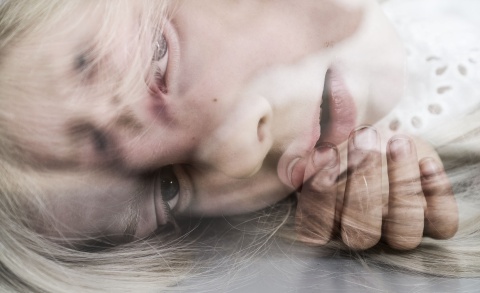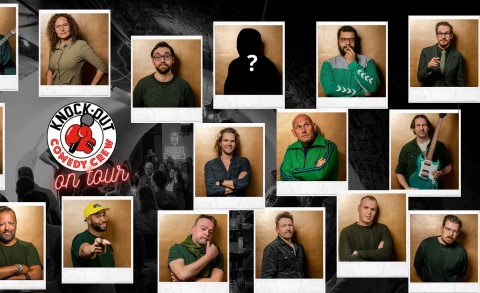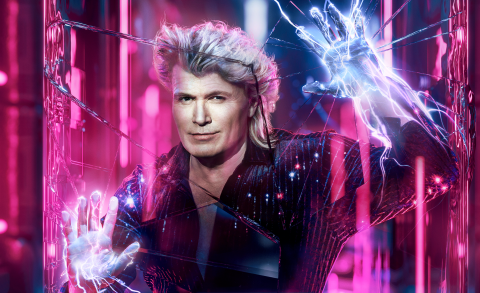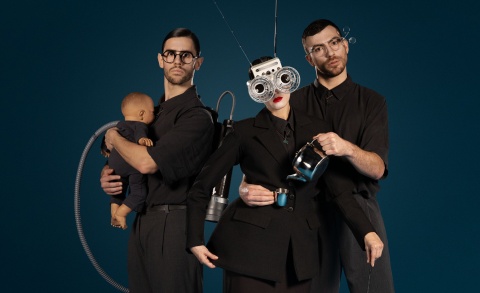Interview mohamedou ould slahi
Textwriter and inspiration for the performance Freedom
Mohamedou Ould Slahi was arrested in his home country of Mauritania in late 2001, a few months after nine-eleven, kidnapped and taken to Jordan. Eight months later he was transferred to Guantánamo Bay, the U.S. military prison in Cuba, where he endured numerous tortures and was held for fourteen years without ever hearing what he was accused of.
During his detention, he began to write down his experiences, in English, the language he learned in prison. He managed to get the manuscript out through his lawyers, and in 2015 his Guantánamo Diary was published, though heavily redacted by U.S. intelligence agencies. After his release in 2016, Mohamedou worked to restore his original words and in 2017, the repaired edition was brought out. The book became an international bestseller and has also been made into a movie: early this year The Mauritanian was released, starring Tahar Rahim and Jodie Foster.
As a writer-in-residence with the Noord Nederlands Toneel and Club Guy & Roni, Mohamedou wrote the script for the dance performance FREEDOM, which will premiere on October 16. Because if anyone knows what freedom is…
I read your book, and I couldn't stop crying. I felt so much shame for what was done to you, and it amazed me how you remained so human, considering all the humiliation and torture you suffered. At one point, you cried when you saw a guard get hurt. You wondered how you could feel pity for someone who treated you so badly. I wonder that too. How is it possible to feel compassion for someone who blatantly shows no compassion for you?
This is a difficult question; I don't know the real answer. I think upbringing, personal beliefs, and resilience play a big role in how we respond to external circumstances. And what we consider important. My priority in life is to be a nice person.
You were deprived of your freedom for a very long time: what does freedom mean to you?
Freedom can be in a lot of things. And freedom is something different for everyone and in every situation. I often tell the story I once heard, about a man with a bladder problem, who when asked if he had ever witnessed a miracle, replied: ‘I just peed!’ Being able to urinate, for him at that moment, was the ultimate freedom.
Not always but often, freedom is within reach. But you can't find it until you know what you need. For one who holds grudges, freedom is to be found in forgiveness. Because resentment, even if there is a good reason for it because someone has done something very bad to you, enslaves you. You chain yourself to the person who hurt you. It is a very true saying: ‘Holding on to anger is like drinking poison and expecting the other person to die.’ Resentment and hatred are self-destructive emotions and a heavy burden to carry. I came to understand that I could free my soul from that heavy burden, by forgiving. It was truly an enlightenment; I had everything, it was there all along, but I just didn't see it yet.
The Lebanese-Canadian activist and writer Najwa Zebian described it so beautifully: 'Today I decided to forgive you. Not because you apologized, or because you acknowledged the pain you caused me, but because my soul deserves peace.’
I wish I had known that quote before I was kidnapped.
In her book, The Choice, Edith Eva Eger, a Hungarian writer who survived Auschwitz by dancing for Mengele, says exactly the same thing. As a psychologist, she helped her clients find freedom through forgiveness.
I would love to read that book.
I would love to give it to you.
Then let's test your karma and hope I can come to Holland soon. Inshallah.
The dance performance FREEDOM by Club Guy & Roni is based on your story and you have been invited as an artist-in-residence by the Noord Nederlands Toneel. How did you come into contact with Guy Weizman?
I was introduced to him by singer and artist Rajae El Mouhandiz. She had read my book and we connected through social media. We became so close right away; I think of her as a dear friend. She is the cause of all the beautiful things that are happening for me in the Netherlands. One of these things is our adaptation of Amazing Grace. In prison I learned about that beautiful hymn by John Newton. The words spoke to the pain I felt in my heart and I began to translate them into Arabic. It was a challenge to stay true to the original words while respecting the Arabic meter and the Mauritanian Sufi undertone. After I met Rajae, we decided to release a new version using my translation around the original hymn, sung by Rajae and singer Taali from New York and accompanied by an orchestra and a choir and the dancers of Club Guy & Roni. On September 11, the recording was published online.
Before your detention you were a computer engineer, now you are a writer and a celebrity; your book is a bestseller, a movie has been released, you appear in the media. How do you deal with this?
I'm very grateful for what's happening. Never in my wildest dreams did I imagine that my cause would become so well-known and a reason for so many people to stand up for democracy and human rights.
I was kidnapped by the secret police in total silence in front of my mother. I can never get that image out of my head of her holding her prayer beads and saying prayers as the car drove off with me. Of course, at that time my captors had no idea that the world would know about me.
Do you have any plans or dreams for the future?
My dream is to be able to write and create in a free country, without fear of persecution or kidnapping. I would really like to get the help of good doctors and psychiatrists to deal with my recurring night terrors and the physical pain I sometimes suffer. I hope that the Netherlands will stand with me and with human rights and grant me a visa. But I will always come back to Mauritania to get my inspiration from the dunes and the vastness of the desert.
The performance Freedom by Club Guy & Roni and Slagwerk Den Haag is featured on November 20th 2021 in the Papyruszaal in Theater aan het Vrijthof. Before the performance there is a free Physical Introduction (Dutch).



